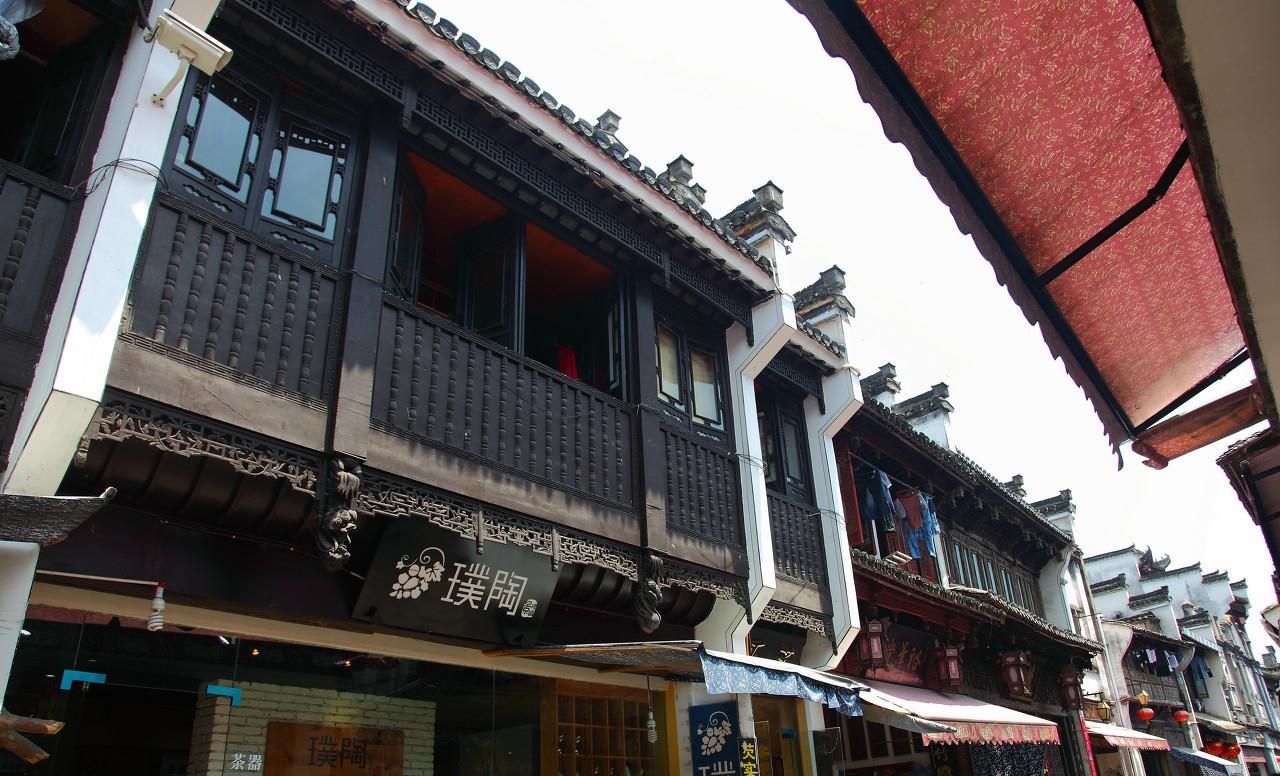
Cheng Lingxue (514-568) character YuanDi, Haining Huangdun (present-day Tunxi Huangdun) people. During the rebellion of Marquis Jing of Liang, Lingxue gathered Yi and Shexiang Yong to defend the place and resist the Jing army, and Emperor Yuan of Liang gave him the history of assassination in Chenzhou and led Xin'an Taishou. After returning to Chen, Emperor Wu JiaQiyi granted Lanling Taishou the title of Marquis of Sui'an County. Later, he was awarded the title of Governor of Southern Yu Prefecture and General of the Left Horse. In the fourth year of Tianjia (563), Lingxue led his troops to defeat Zhou Di's soldiers, moved the central protectors, and oversaw the history of Yingzhou.
Cheng Weizong (1332-1413) was a native of Xiuning County (present-day Tunxi). At the age of 19, he went to the countryside to take the test, returned unsuccessfully, and was angry and threw himself into the teacher's hard reading, but he failed to win. In the eighteenth year of hongwu of the Ming Dynasty (1385), 4 shop houses were built in eight stacks in Tunxi, with a total of 47 houses, which were used for the goods of Tunju merchants, that is, the prototype of Tunxi Old Street. At that time, the tax paid was crowned in a county. He was happy to do so, donated funds for the temple, and built a pavilion on the site of the former residence of Caoshi to worship his ancestors. And in its Linxi Gaoyuan Zhuang does not rely on the heavy fee body weir to open the canal two miles, can divert and irrigate more than 1300 acres of land, one side of the people are benefited by it, the world called it "Cheng Jie".
Cheng Minzheng (1445 – 1500), courtesy name Keqin, was a native of Ming Xiuning Huangdun (present-day Tunxi), then known as Cheng Huangdun. Cheng Minzheng has been smart and studious since childhood, loves to read, and has been known as a "prodigy" since he was a child. In the second year of Ming Chenghua (1466 AD), he was the second place in the first class of the temple style, and was awarded the editing of the Hanlin Academy, and the official was the right attendant of the ceremonial department. Cheng Minzheng read a lot of books, was familiar with the classics of previous dynasties, and participated in the compilation and correction of the records of the Ming Yingzong and Xianzong dynasties for many times. Cheng Minzheng is on a literary par with Li Dongyang, and his works include "Records of the Relics of the Song Dynasty", "Huangdun Anthology", "Ming Wenheng" and so on. Cheng Minzheng loves the countryside and cares about local cultivation, and the "Xin'an Literature Chronicle" he compiled has certain reference value for the study of Huizhou history.
Cheng Dawei (1533-1606) character Rusi, Binqu, Ming Xiuning Kouqu East (present-day Tunxi Qianyuan Village) people. Mathematician of the late Ming Dynasty. After cheng dawei was forty years old, he abandoned the Shang and returned to Li, "Qin pondered on the water of the rate", after twenty years of painstaking study, immersed himself in writing, and wrote in the seventeen volumes of the "Algorithm Tongzong" in the twentieth year of the Ming Wanli Calendar (1592 AD). Later, the "Algorithm Tongzong" was simplified by himself, and through its essentials, it was written into four volumes of the "Algorithm Compendium" (1598 AD), which was more perfect and concise.
Fan Lai (c. 1560-1610) was a native of Lintang, Yiqi Town, Tunxi. During his tenure in Chengzhi County, southwest of Jiangxi, he advised farmers to revitalize learning and do good governance. In the twenty-second year of the Wanli Calendar, Fan Lai was appointed as the deputy envoy of the Zhejiang Provincial Bureau of Inspection, and was put in prison. He went to the West Lake to visit the cemetery of Yue Fei, the national hero of the Anti-Jin Dynasty, and saw the three bronze statues of Qin Jun, Wang Shi, and Wan Qianyu, who had been cast by Li Long, who had been persecuted for the traitorous country and seeking glory and persecuting Zhongliang, and was shattered by the indignation of the tourists who visited Yue's tomb. Fan Lai deeply praised the people's actions and decided to reforge these kneeling oaks with hard pig iron.
Dai Zhen (1723–1777) was a Qing Dynasty thinker and phonological hermenist. When Dai Zhen was young, he read books and thought deeply, every word must be righteous, and the master of the school gave him the text, and he did his program for three years. At the age of sixteen, he studied annotated. Dai Zhen is profoundly knowledgeable, discerning and judging, and has outstanding achievements in doctrine.
Hu Tianzhu (1742-1808), formerly known as Hu Zheng (胡正), was a native of Shangzhuang, Jixi County, China. The founder of Hu Kaiwen's ink industry, together with Cao Sugong, Wang Jinsheng and Wang Jie'an, is known as the four major ink families of the Qing Dynasty. Hu Tianzhu was born in the family of Shangjia, and as a teenager, he worked in the Wang Qimao Ink Shop in Xiuning City and married wang Qimao's daughter. The "Earth Ink" produced by his son Hu Yude won the gold medal at the Panama Exposition in 1915. Hu Tian's attention to Jia and good Confucianism, donated funds from the Nine Pins, to Feng Zhi Dafu. [16]
Glossary of terms